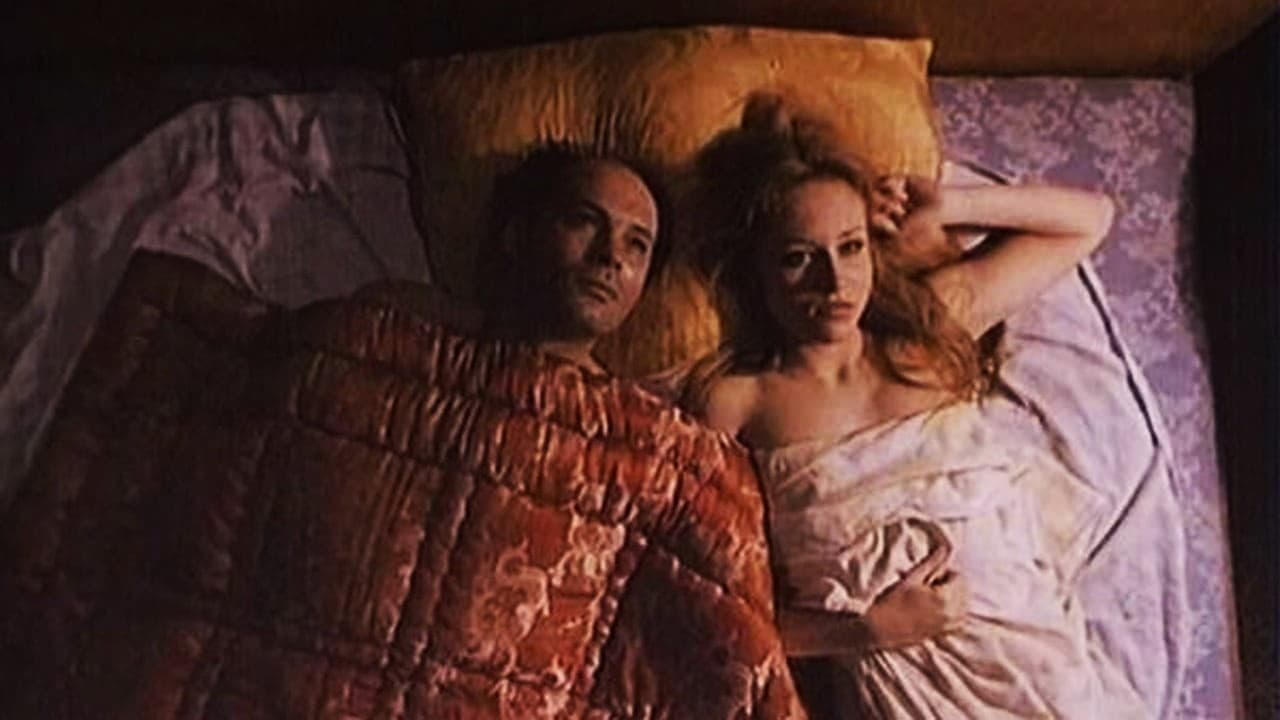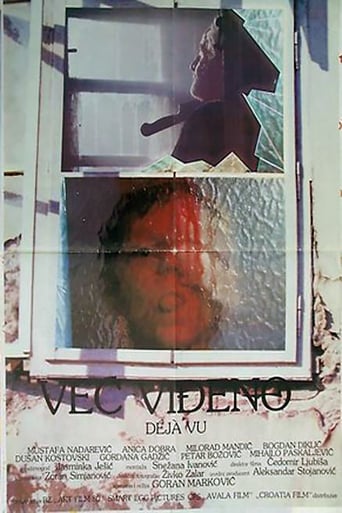

considering rest of markovic's work, this movie takes low position on list of his movies, for someone else it may be average, but not for goran markovic. as we are used to negative associations for yugoslav communist authority in markovic's movies, same thing is presented in 'vec vidjeno'. movie is about the man who is piano teacher who wasted his exceptional talent, primarily because of his childhood traumas which effected the rest of his life to the point of absolute mental decay. he associates nowadays reality with scenes from his childhood (explanes movie title)and general atmosphere is very melancholic and heavy, but not strong or effective enough and that's the key problem
... View MoreNow I'm not saying this is a masterpiece, but it is nonetheless a very interesting movie. It is definitely worth seeing, if you get a chance.The storyline follows the life of a child whose posh family disintegrated following the arrival of communists in Belgrade, Serbia.The loss of his family, societal status and dignity and the perceived lack of morals in the communist society drives him further and further away from the mainstream and into loneliness, depression and murderous obsession.The movie maybe tries a little too hard to represent the post-war communist society as a parade of ignorant, unsophisticated and violent peasants, freshly arrived from the mountains and villages but already ruling every aspect of the new society.The film is really about violence, and about painful changes in society that war and violent revolutions bring.
... View MoreGoran Markovic's 1987 "Vec vidjeno" (aka Deja Vu) certainly was an ambitious production; heralded in the local press at the time of its release as "the first real Yugoslav urban psycho-thriller/horror", it left both the critics and the previously Hitchcock/Polanski/DePalma/Carpenter-educated audiences fairly unimpressed and it's easy to see why: the story told by the film - and the way it's told - is not just derivative, it's a half-baked catalogue of genre clichés hastily stitched together in hope they would all work in the end and in the domestic setting. Sadly, they didn't. The acting is fairly wooden thanks to a contrived dialogue (Mustafa Nadarevic, in his first, and very likely last role as a sexually frustrated/Oedipally challenged piano-teacher-come-psychopathic-killer is badly miscast and as such barely watchable; even more so and to the point of embarrassment is Anica Dobra - as ever in dire need of more acting/elocution lessons - as the leggy blonde-object-of-his-attention/attraction). Always reliable character actors such as Olivera Markovic and Bogdan Diklic are left with little or nothing to do in their supporting roles, and the film haemorages heavily towards its heavy handed, clumsy and sluggish "dramatic" climax, burdened further still by Zoran Simjanovic's microwave-friendly but ultimately putrid music score.The only half-redeeming aspect of the production in this feature is a studious (sometimes conspicuously so) effort to make this a "period piece" - the story is supposed to be happening in the early seventies - by way of costumes, hairdos, set designs and art direction, such attention to detail being relatively rare in Yugoslav cinema of the time, and this is where the film gathers its few good points; further back in the past, the childhood flashback sequences are nicely shot, all steeped in the nostalgic golden-orange sfumato seeping into luxurious rooms of pre-war Belgrade from between the curtains and/or blinds, and so on. Still, the overall impression is the one of directorial ineptness in the face of the demands of the genre, despite obvious fondness of it (Markovic had already flirted with the thriller/horror genre once before, in his 1982 "Variola vera", and to marginally less questionable effect). "Vec vidjeno/Deja Vu" is hardly his best effort, and is today of interest only to local film buffs and unselective Yugoslav movie collectors, such as the author of this comment.
... View MoreVec vidjeno is the gem in Goran Markovic`s opus. Markovic is in my opinion the best Yugoslav director of all time, and his movies in a satirical way perfectly portrayed society and social distorsions in Yugoslavia at the end of 70`s and up to the mid 80`s. Vec vidjeno (or also known as Deja Vu), is however looking on the other side of life, and horror, with the unavoidable elements of society`s flaws, raging from before World war II, up to mid 70`s where the plot is set. This is the most complete, griping and artistic Yugoslav movie that takes you by surprise and stares right in your face up to the very end
... View More